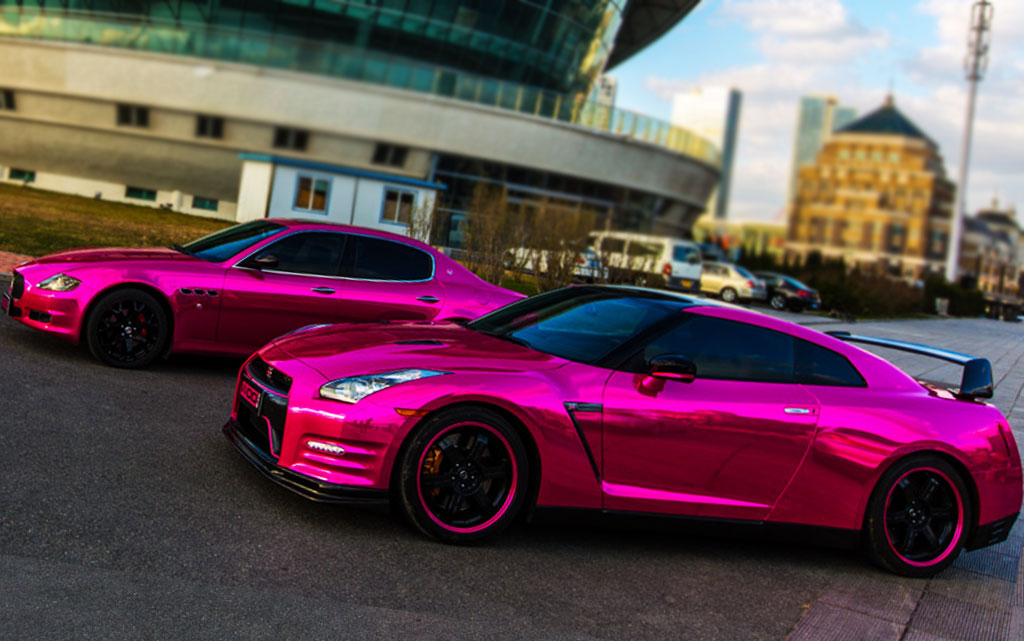Transforming Vehicles: The Rising Popularity of Car Wraps
Car wraps have become an increasingly popular way for vehicle owners to customize their cars without committing to permanent paint changes. Unlike traditional paint jobs, car wraps use large sheets of vinyl film applied directly to the vehicle’s surface, allowing for unique designs, colors, and finishes. The flexibility and affordability of car wraps have made them a go-to option for personalizing cars, advertising businesses, and protecting original paint.

One of the key benefits of car wraps is their ability to protect the vehicle’s factory paint from minor scratches and environmental damage. The vinyl film acts as a shield against road debris, UV rays, and even acid rain, preserving the car’s resale value. Because car wraps can be removed without damaging the underlying paint, vehicle owners can experiment with different styles or return the car to its original look. This reversible nature makes car wraps an attractive option for those who want temporary or seasonal changes.
Car wraps are not just about aesthetics; they offer a cost-effective alternative to repainting a vehicle. Custom paint jobs can be expensive, time-consuming, and sometimes irreversible, while car wraps can be installed in a matter of days and removed with ease. This makes car wraps especially popular among businesses that use vehicles for advertising. Companies can wrap their fleets with logos, contact information, and promotional graphics to increase brand visibility while on the road.
The versatility of car wraps also extends to the variety of finishes available. Whether someone desires a matte, glossy, metallic, or even textured finish, car wraps can provide it. This wide range of options enables vehicle owners to express their personality or match a brand identity without limitation. The creative potential of car wraps has inspired artists and designers to push the boundaries of what is possible on a moving canvas.
Installation is another critical aspect of car wraps that contributes to their growing popularity. Professional installers use heat guns, squeegees, and specialized tools to ensure the vinyl film adheres smoothly to every curve and contour of the vehicle. Proper installation is essential to avoid bubbles, wrinkles, or peeling, which can detract from the overall appearance. As the demand for car wraps grows, more skilled technicians are entering the market, making the process more accessible to everyday consumers.
Maintenance of car wraps is relatively simple compared to traditional paint. Since the vinyl film is designed to be durable and weather-resistant, cleaning a wrapped car requires only mild soap and water. Avoiding harsh chemicals or abrasive scrubbing helps prolong the life of the car wrap. Many car owners appreciate that their wrapped vehicles retain a fresh look with minimal effort, making car wraps a practical choice for busy lifestyles.
Environmental considerations have also contributed to the rise of car wraps. Unlike repainting, which involves the use of volatile organic compounds (VOCs) and other harmful chemicals, car wraps produce less environmental impact during application. The ability to remove and recycle vinyl materials further adds to their eco-friendliness. For consumers seeking greener alternatives in automotive customization, car wraps present a responsible solution.
In addition to personal and commercial uses, car wraps have made their way into motorsports and events. Racing teams often use car wraps to display sponsors and team colors, allowing for quick changes between races or seasons. Event organizers also leverage car wraps on promotional vehicles to create eye-catching displays that draw attention at trade shows or public gatherings. The flexibility and impact of car wraps make them ideal for dynamic marketing environments.
Despite their many advantages, car wraps do come with some limitations. The lifespan of a car wrap typically ranges from three to seven years, depending on factors such as climate, care, and material quality. Harsh weather conditions or improper maintenance can shorten this lifespan. Additionally, while car wraps can cover most surfaces, certain complex shapes or damaged areas on a vehicle may be challenging to wrap effectively. It is important for consumers to consult with professionals before deciding on a car wrap.
Ultimately, car wraps represent a fusion of art, marketing, and protection that appeals to a broad audience. Whether for personal expression, business branding, or vehicle preservation, car wraps provide a flexible and attractive option that fits a variety of needs. As technology and materials continue to improve, the future of car wraps looks bright, promising even more innovative possibilities for vehicle customization.